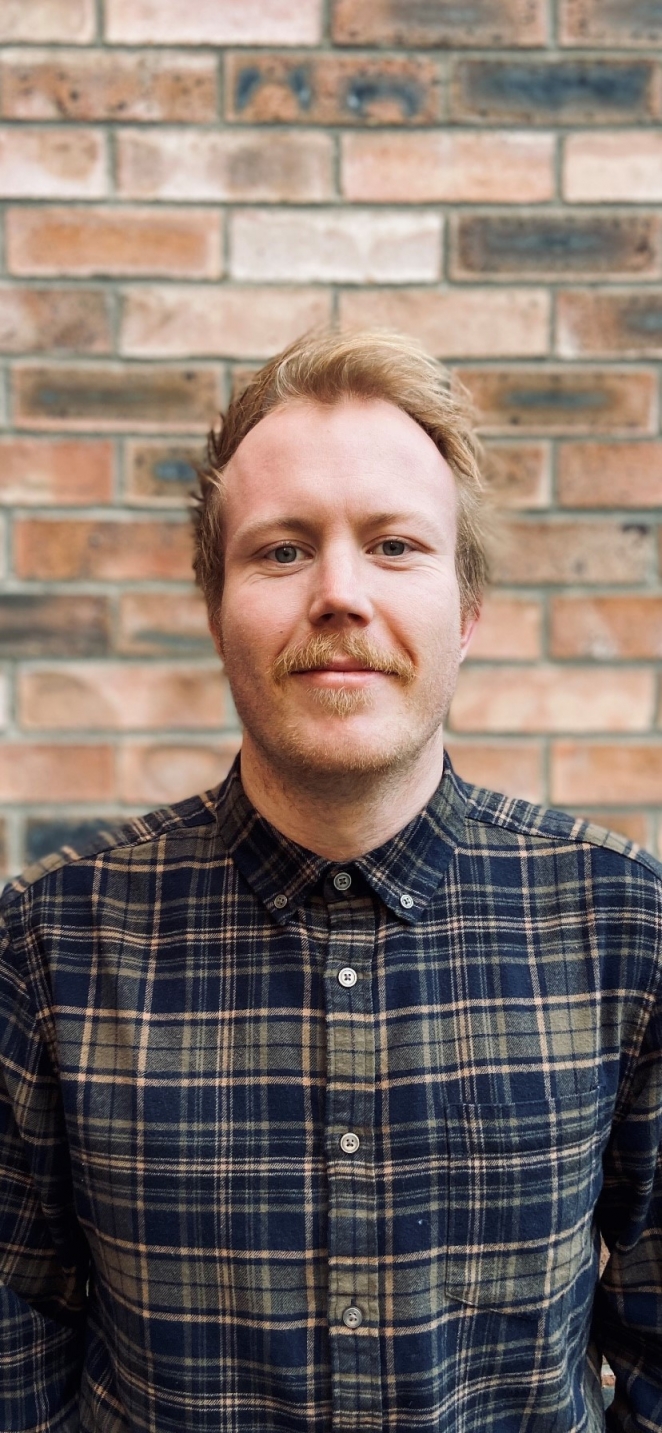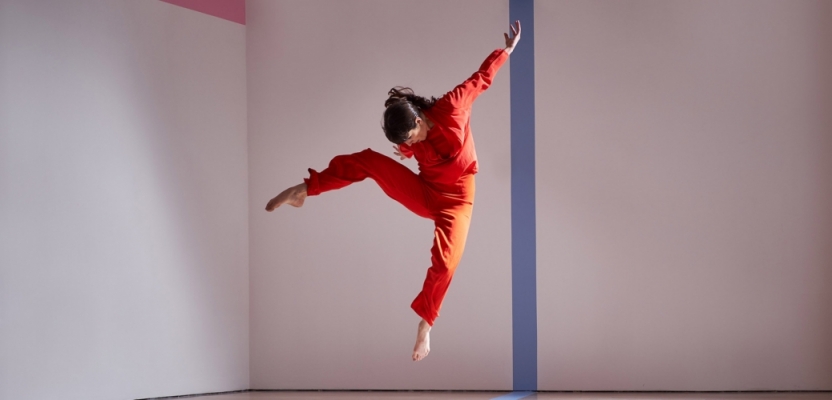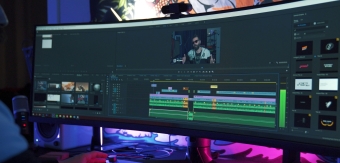It's been an interesting 12 months for the creative jobseekers out there. To some, career prospects have become quite grim. Others have just started to get back on their feet. In this climate, there are some unsung heroes who work behind the scenes – the Fates of creative recruitment, and in a way, the gatekeepers of the industry as well.
Recruitment agencies work relentlessly to ensure the best talent is always matched to the right business opportunities. It is the work of professionals such as Archie Harvey, Associate Director at mustardXP, the live events and experience division of mustard. A particularly challenging place to be, given the current climate – and yet, one that Archie is always proud to call home.
Recruitment agencies work relentlessly behind the scene to match talent to business opportunities. They are also the most reliable holders of knowledge in and about the job market.
It just so happens that recruiters are also the best people to ask for advice, when it comes to career hacks and general job-related tips. So that's exactly what we did. For this first ever article in our LaunchPad series, we are diving deep into the secret mechanisms of the recruitment game for all of you creative professionals out there.
Special thanks go to mustard, which will become quite a regular in this series for a while.
If you are planning the next step in your career, make sure to browse our design jobs and start applying today!

Can you share some top tips to help a professional land their dream job?
Ahhh the question on all job seekers' lips. I guess it would be easiest to share a list of what I think would be my top 3…
- Work ethic and attitude. Without a proven track record of both it’ll be difficult to get yourself over the line and receive an offer. References from previous employers will be crucial, however also the way you can convey this through an interview process. Do your research, show interest, build rapport and leave a lasting impression.
- Know what it is you REALLY want to be doing with your career. Easier said than done but, essentially, do your research. Coming from the Live Experience sector, there are so many types of live experiences you can be involved with. Be it conferences, exhibition stands, live streaming, festivals, product launches, experiential campaigns etc… Take a look at the industry you’re interested in and look at where your passions can be applied best.
- Look at how you present yourself through your CV, Portfolio, Website, Linkedin, Instagram etc… These need to sing what you are about and what you are capable of.
When is the best time to consider switching to a new role?
Holding down one job in your lifetime is rare these days. I feel employers have a responsibility to develop their talent’s skills and confidence and prepare them for future opportunities. So moving on shouldn’t feel like a risk, it’s healthy to and the best way to encourage your abilities to work with new teams and on new briefs. The most common reasons I hear for those looking to change jobs would be a lack of progression available for those ambitious types, becoming too repetitive from familiar projects coming about year on year and a change in circumstance such as relocating or in need of higher salaries for external goals outside of work.
In short “it’s never a good time to move on”, given commitment to pipelines of work. But if the opportunity on offer feels right and you have all the relevant information to make a confident decision, then go for it. It’s your career progression at stake!
How would you personally approach a career change?
Once I felt I had achieved everything I wanted to achieve, then that’s when I would personally approach it. As long as you’re enjoying what you do then that counts for a lot!
What is your precise role in the hiring process? What do your clients expect from you with each new vacancy?
My role is a fairly simple one, go out and find the most suitable talent for the job and business culture, ideally filling the vacancy with the right person. Recruitment is a costly process if you’re looking to take it on internally. Given the ads you would have to pay for, along with reading through the applicants CV’s, shortlisting those, taking on initial phone interviews, screening those, inviting those you think could be a good fit into interview, time spent interviewing 5-10 candidates and then going to second or third stage, and then pulling together an offer and then checking references to ensure they’re making an offer to the right person… breathe! It takes time, which costs money and effort, which can be costly to the day to day work.
Therefore, we minimise that impact by ensuring (as a minimum) we are submitting anyone for an application who has been vetted and qualified through phone or video interview, has a minimum of two references already checked, and then manage the process from end to end by booking interviews, handling paperwork and ideally managing their expectations, so that they will 100% accept that offer and not your competition’s. We also have job boards that we pay for, so our clients don’t have to.
If you had to pick one ideal client, who would that be and why?
Obviously they are all ideal clients so not going to name names… However I would say any that show willingness to complete the process in a structured and motivated way. As I’ve indicated before, recruitment takes time and effort logistically, so an ideal client is one that wants to complete that objective.
How do you go about ensuring successful business relationships with your clients?
Not just being a “yes mr/mrs client” kind of recruiter. I’ve found over the years that pushing back on job briefs and working WITH my clients has proven to take our relationships from just working on a few positions to then being able to give advice and consult them on recruitment strategy and share market insights. Outside of pandemics I really enjoy getting out of the office and heading to meetings, lunches, dinners, coffees or beers with them. They are just humans too at the end of the day.
What are the common struggles your clients face when looking for a perfect creative addition to their team?
Attitude and communication are so important. You can have all the creative talent in the world but if you don’t have the drive to succeed or ability to talk through your creative thinking and process, then getting through that interview process successfully will be difficult. Interview preparation is crucial! It’s your work so you should be confident in talking it through. I would add to have an understanding of the big picture of design projects. What is it the project is trying to achieve? Finding designers that can understand that from brief stage is going to help you stand out.
Are there any trends in the roles and experience your clients have been looking for in recent times?
Over the last few years, strategy and content have been a couple of the key buzz words we’re hearing and seeing in the creative jobs market. Coming from the experiential and events industry this is very much the case, along with of course the rising surge in virtual / online experiences.
How can creative applicants make the best of their CV?
Keep it simple and keep it to one page if possible. I like having the CV at the beginning of the portfolio in a landscape format. I / we at mustard are big advocates of PDF CV’s and Portfolios as this showcases your ability to layout and you have complete control of how the potential employer views your work. Not just skipping round a website and potentially missing your best or proudest project.
What are some pros and cons of creative CVs?
I don’t see any negatives, just don’t detract too much from what the CV’s function is. Hyper links to websites, social accounts or video content is fine. As long as the links work! Adding graphics or considering typography, along with the layout should showcase your creative ability. No need to add huge blocks of colour or photos.
What are some common mistakes you see in job applications?
It seems really simple but we do often receive CVs that are missing contact details! Make sure your CV has all the information it should. If you’re going to include hyperlinks in your CVs, make sure they work. It just looks bad and you’ll miss that opportunity for us to see your best work. If you’re a designer, I wouldn’t expect your CV to come through in a Word document format, spend some time creating one. On that note, we sometimes see generic CVs used across multiple applications. Take the time to tailor it for specific applications to make your relevance shine best!
What is the most creative idea you’ve seen in a CV?
So going back to my last answer, we recently saw a CV / website that a candidate created specifically for a job at Spotify. The candidate created a website page herself which included her relevant passions and work experience along with her favourite Spotify playlist. This included Tweeting Spotify prior to launching the website. She got the job.
I’ve also seen video CVs made using motion graphics and well selected symbols and design, along with them being narrated by the candidate themselves. These will get you noticed!
Knowing what you know now and as an insider, how would you break into the creative industry as a recent graduate?
As an under-graduate or post-graduate designer, I would be thinking if I have managed to build up some work experience already and begun to develop my network with people already in the industry. Having those connections is vital.
Presenting your work in a creative and engaging way will help to set yourself apart from the crowd. Why not try make a video CV or something super bespoke to the business you’re applying for? Get creative! Resilience and perseverance are also crucial traits to own. The competition for jobs at a graduate / junior level can be fierce, however there is one with your name on it somewhere. Practice your interview technique and do your research to stand out and get noticed.
The more confident you are in delivering or presenting your work the better, so practice. Ensure your social outlets like Instagram and Facebook are a strong reflection of your creative self too.
From your perspective, how has Covid-19 influenced the job market?
It’s been a tough year to put it lightly for the creative industry as a whole. Specifically to events it has resulted in no physical events to be held and therefore many designers have been left without anything to design. It has however opened up opportunities for the industry to explore new technologies and the way we interact with events as a whole. The last 12 months have seen all events go virtual or online, so that has presented its creative challenges but in a good way.
I guess the digital design industries have boomed during this period or perhaps maintained momentum. I look forward to seeing how design will impact the “new normal” in the future. An exciting time ahead, I feel.






